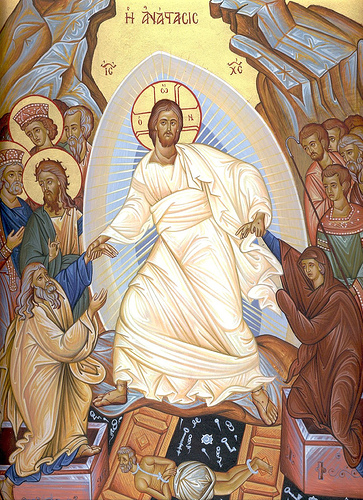Thomas Sunday
Though the doors were shut at the dwelling where the disciples were gathered for fear of the Jews on the evening of the Sunday after the Passover, our Saviour wondrously entered and stood in their midst, and greeted them with His customary words, "Peace be unto you." Then He showed unto them His hands and feet and side; furthermore, in their presence, He took some fish and a honeycomb and ate before them, and thus assured them of His bodily Resurrection. But Thomas, who was not then present with the others, did not believe their testimony concerning Christ's Resurrection, but said in a decisive manner, "Except I shall see in His hands the print of the nails, and put my finger into the print of the nails, and thrust my hand into His side, I will not believe." Wherefore after eight days, that is, on this day, when the disciples were again gathered together and Thomas was with them, the Lord Jesus came while the doors were shut, as He did formerly. Standing in their midst, He said, "Peace be unto you"; then He said to Thomas, "Bring hither thy finger, and behold my hands; and bring hither thy hand, and thrust it into My side: and be not unbelieving, but believing."
And Thomas, beholding and examining carefully the hands and side of the Master, cried out with faith, "My Lord and my God." Thus he clearly proclaimed the two natures - human and divine - of the God-man (Luke 24:36-49; John 20:19-29).
This day is called Antipascha (meaning "in the stead of Pascha," not "in opposition to Pascha") because with this day, the first Sunday after Pascha, the Church consecrates every Sunday of the year to the commemoration of Pascha, that is, the Resurrection.



